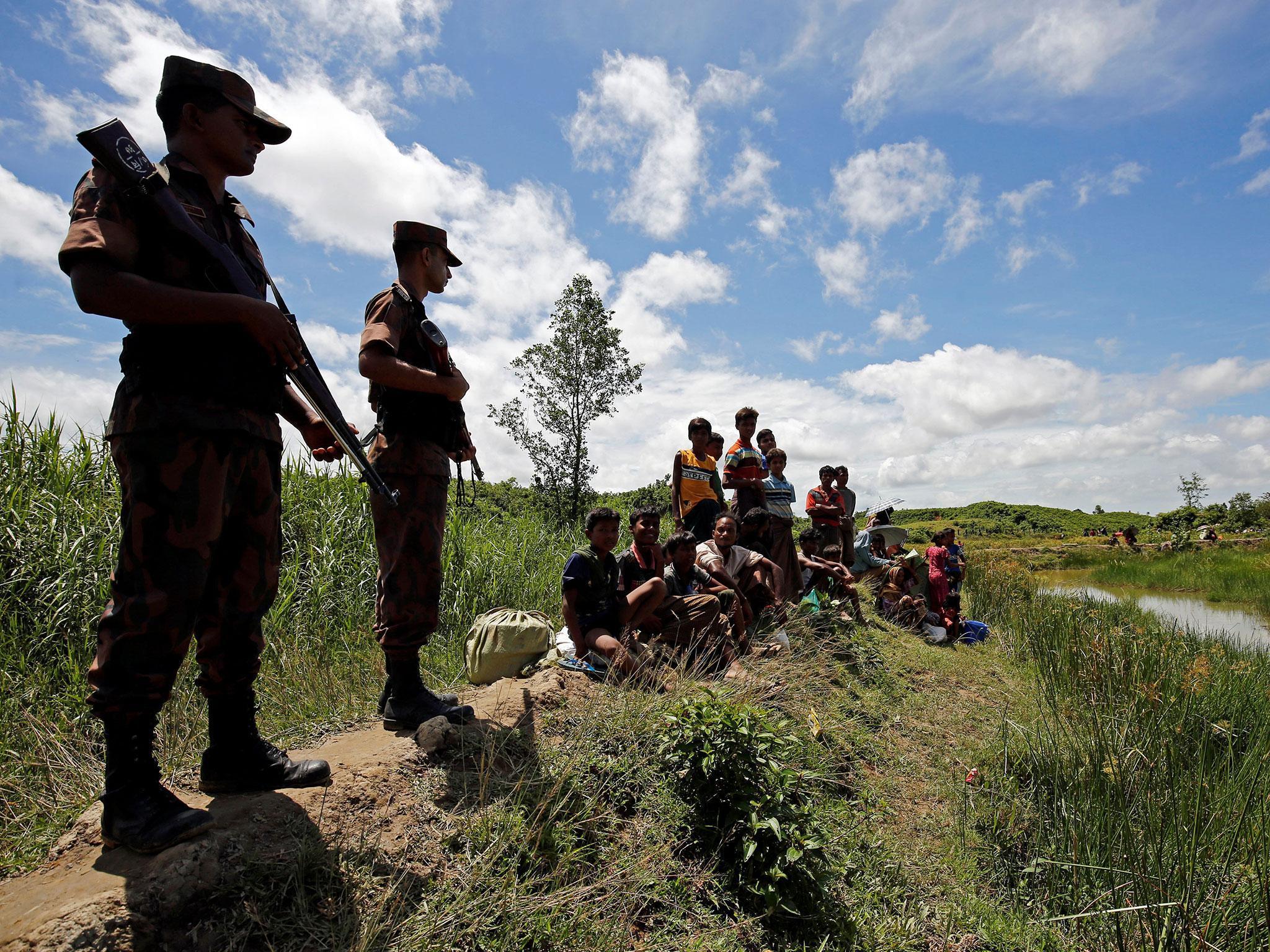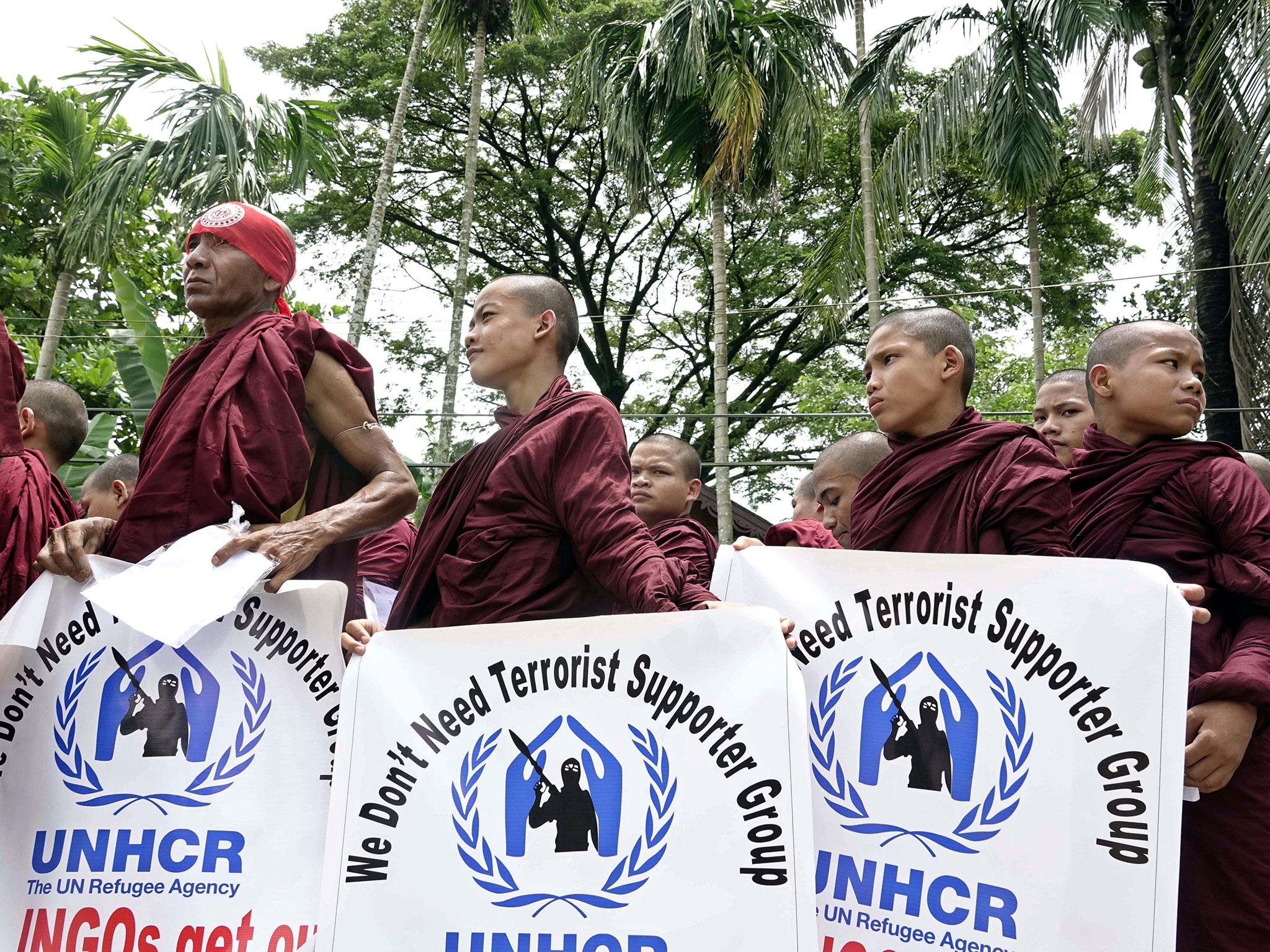Clashes in Burma leave scores dead as thousands of Rohingya Muslims flee ongoing violence
Rohingya insurgent group accused of 'torching police outposts and monasteries, killing innocent people and planting mines'

Hundreds have died in clashes between Burmese authorities and Rohingya insurgents, sending thousands of Rohingya Muslims fleeing across the border to Bangladesh.
Ongoing violence has seen civilians killed, buildings burned down and land mines planted after insurgents launched attacks against police posts last week.
The death toll from the violence has reached 104, the vast majority being militants, plus 12 members of security forces and several civilians, according to a Reuters tally based on official figures.
Advocates for the Rohingya suggest many more civilians have died in army attacks on villages, but they have not given a total.

Bracing for more violence, thousands of Rohingya – mostly women and children – attempted to cross the Naf river separating Burma and Bangladesh and the land border.
Reuters reporters at the border heard gunfire from the Burmese side, which triggered a rush of Rohingya towards the no man’s land between the countries.
Several hundred Rohingya got stuck at one border point in Bangladesh’s Bandarban district, barred from moving farther by Bangladeshi border guards.
Around 2,000 people have been able to cross into Bangladesh so far, according to estimates by Rohingya refugees living in the makeshift camps in Bangladesh.
Burma is overwhelmingly Buddhist, but about 1.1 million Muslim Rohingya live in the northern part of Rakhine state, where the violence is taking place.
The treatment of the Rohingya population has emerged as the biggest challenge for national leader Aung San Suu Kyi.
The Nobel Peace Prize laureate has been accused by Western critics of not speaking out for the long-persecuted Muslim minority.
A Rohingya insurgent group, the Arakan Rohingya Salvation Army, or ARSA, took responsibility for Thursday night’s attacks on more than 25 locations, saying they were in defence of Rohingya communities that had been brutalised by government forces.
Ms Suu Kyi’s office accused the insurgents of “torching police outposts and monasteries, killing innocent people and planting mines”. ARSA, meanwhile, accused the army of using civilians as human shields.

The government refuses to recognise Rohingya as a legitimate native ethnic minority, calling them Bengalis to push the position they are mostly illegal immigrants from neighbouring Bangladesh, though many can trace family in Burma for generations.
Most Rohingya endure apartheid-like conditions as they are denied citizenship and face severe restrictions on their movements.
The Rohingya were the targets of violence in 2012 that killed hundreds and drove about 140,000 people – predominantly Rohingya – from their homes to camps for the internally displaced, where most remain.
Additional reporting by agencies
Join our commenting forum
Join thought-provoking conversations, follow other Independent readers and see their replies
Comments
Bookmark popover
Removed from bookmarks